Tips and Tricks
Maximize Your Fat Bike Rides
Fat biking is the best way to enjoy winter while continuing to ride a bike. Here are some tips to maximize your winter outings.
Fat biking is the best way to enjoy winter while continuing to bike. If the mountain biking season feels too short for you, you should consider getting a fat bike.
Ready to ride? Here are some pro tips to maximize your winter outings.
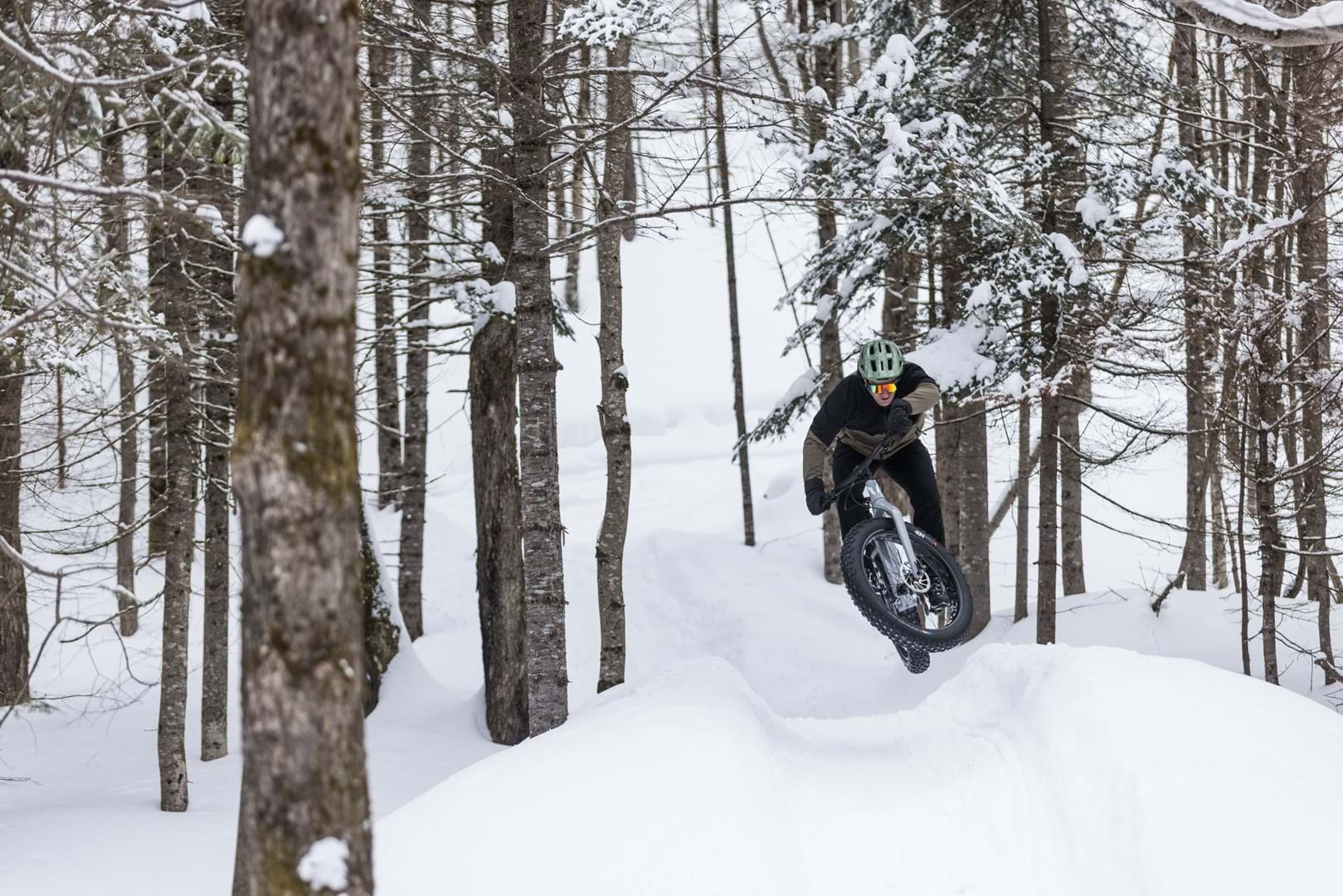
How to dress?
Layering is key. Temperatures will be much colder, but fat biking is still a very cardio-intensive sport. The best strategy is to dress in layers. It’s important to start with a thin, breathable layer (polyester, merino) to stay as dry as possible.
Then, depending on the weather, you can add an insulating mid-layer or simply go with a softshell. This will protect against the wind while remaining breathable.
In case of snow or wetter conditions, some opt for a waterproof shell. However, this type of layer does not offer the same breathability.
For your hands, opt for gloves to maintain maximum dexterity.
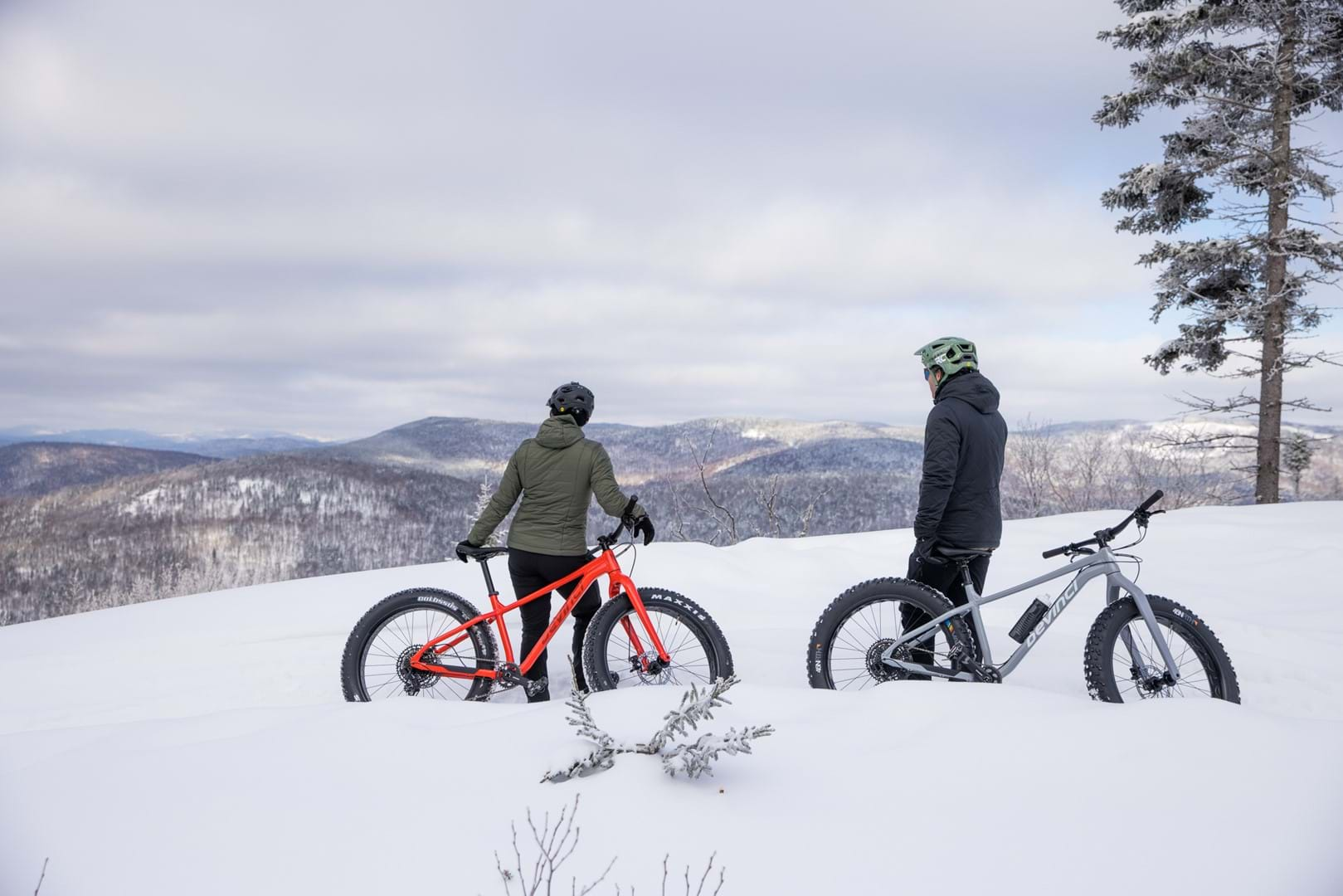
Fat Bike Maintenance
It’s ideal to transport your bike inside the car to prevent salt damage. It’s also important to dry your bike after each ride to prevent corrosion.
Pay particular attention to your chain, cassette, shift cables, and steel bolts.
Lubricate your chain after drying it.
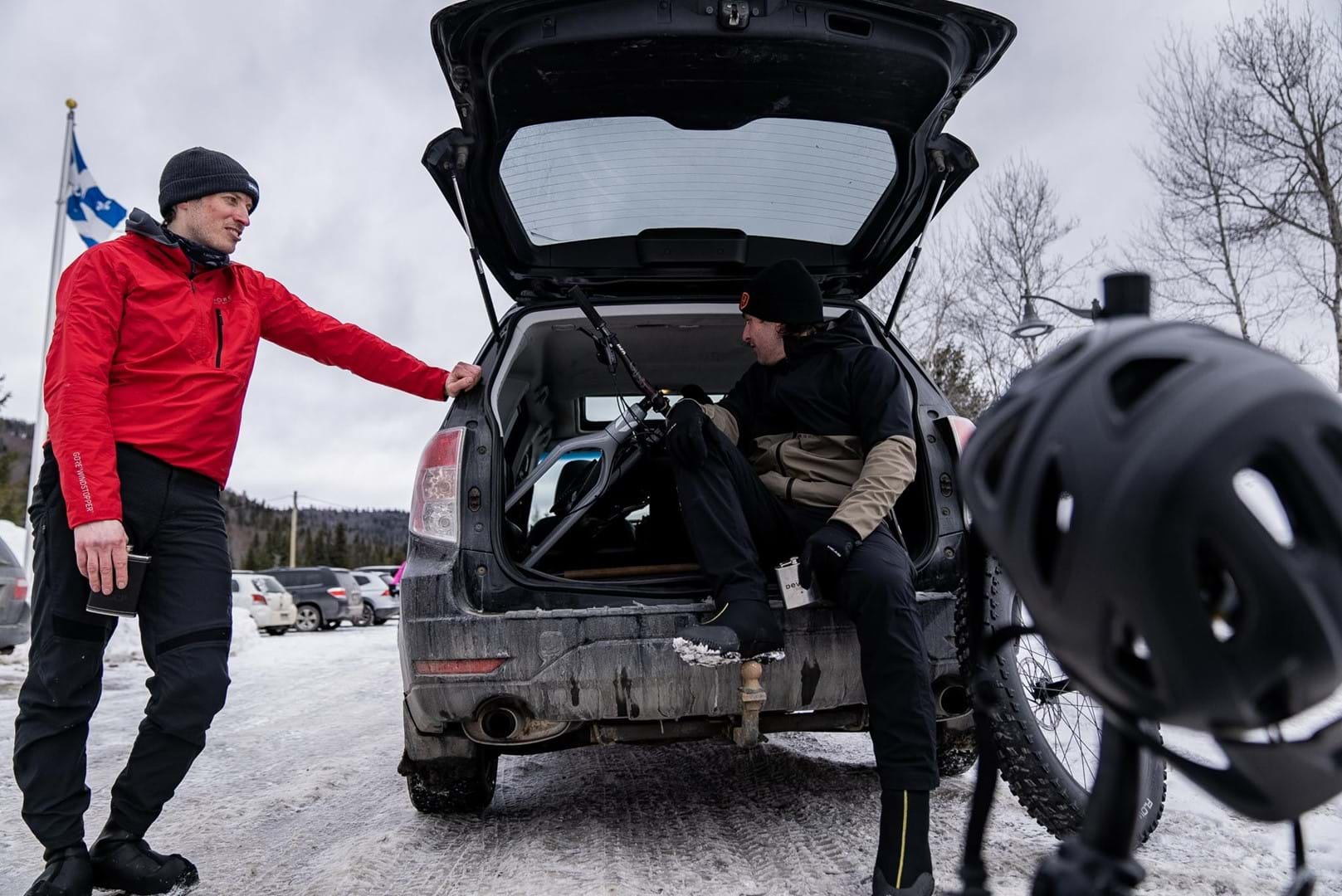
Tire Pressure
This is an important aspect to truly enjoy your rides. If the tires are too hard, you’ll lose traction. If they are too soft, they will deform too much and make your handling feel unstable. You need to find the right balance based on your weight and tire width. Test in the street before your first ride to find the pressures that work for you. It’s advised to have the front tire a bit softer than the rear.
Remember, on a fat bike, even one PSI can make a big difference due to the large tire volume.
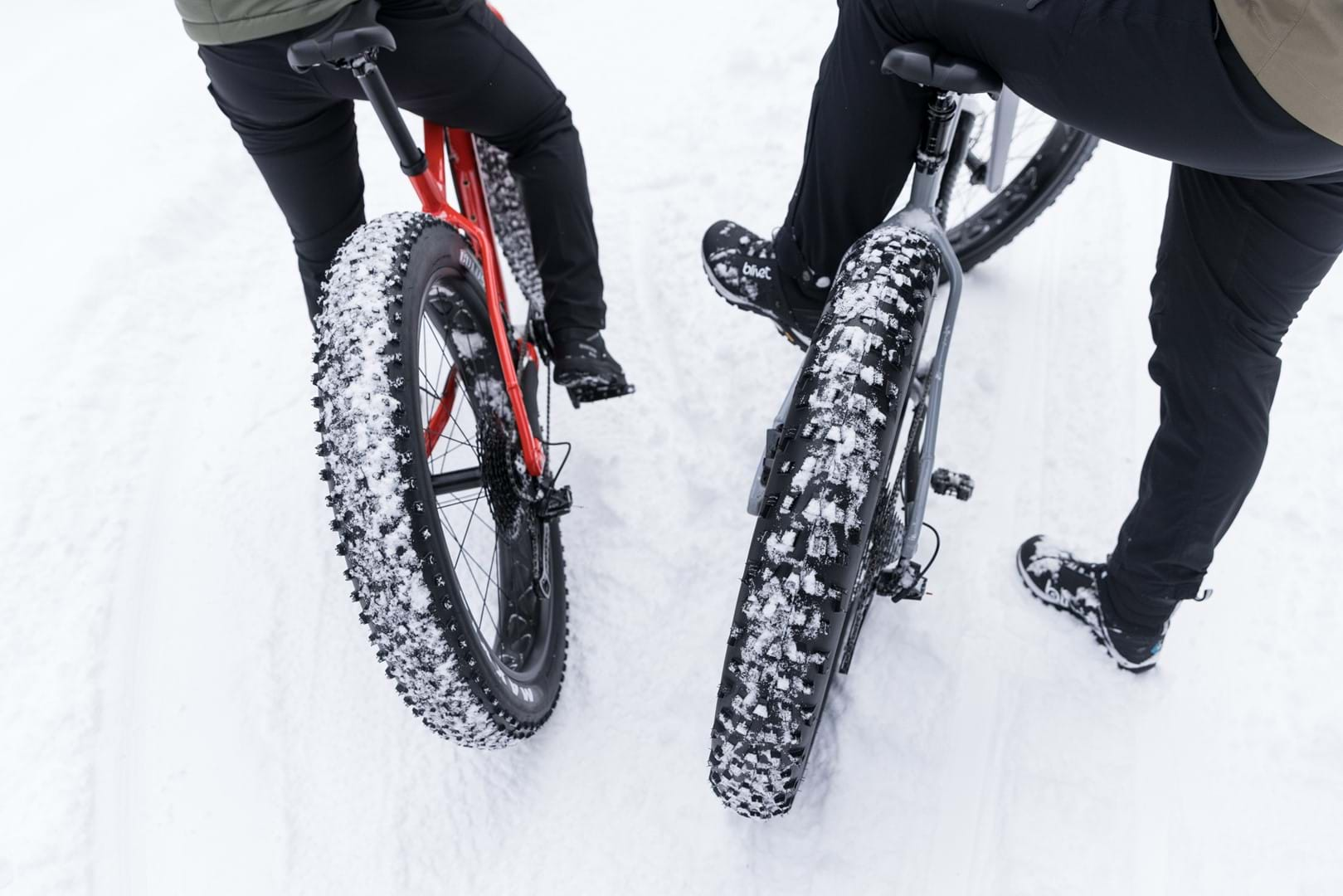
Conditions
After a snowfall, the trails will be soft. It’s always better to wait until they are well packed. Just like in summer, it’s important to understand that you need to adapt your riding to the conditions.
When conditions are icy, studded tires are highly recommended. Without them, fat biking can become quite difficult. It’s up to you to judge based on the trail conditions and your comfort level.
Riding Technique
The key to success in fat biking is to reduce sliding. It’s important not to lean the bike too much in flat turns and not to brake too abruptly. Stay in the packed portions of the trails, otherwise you might go over the handlebars quite easily... a good old “OTB” !
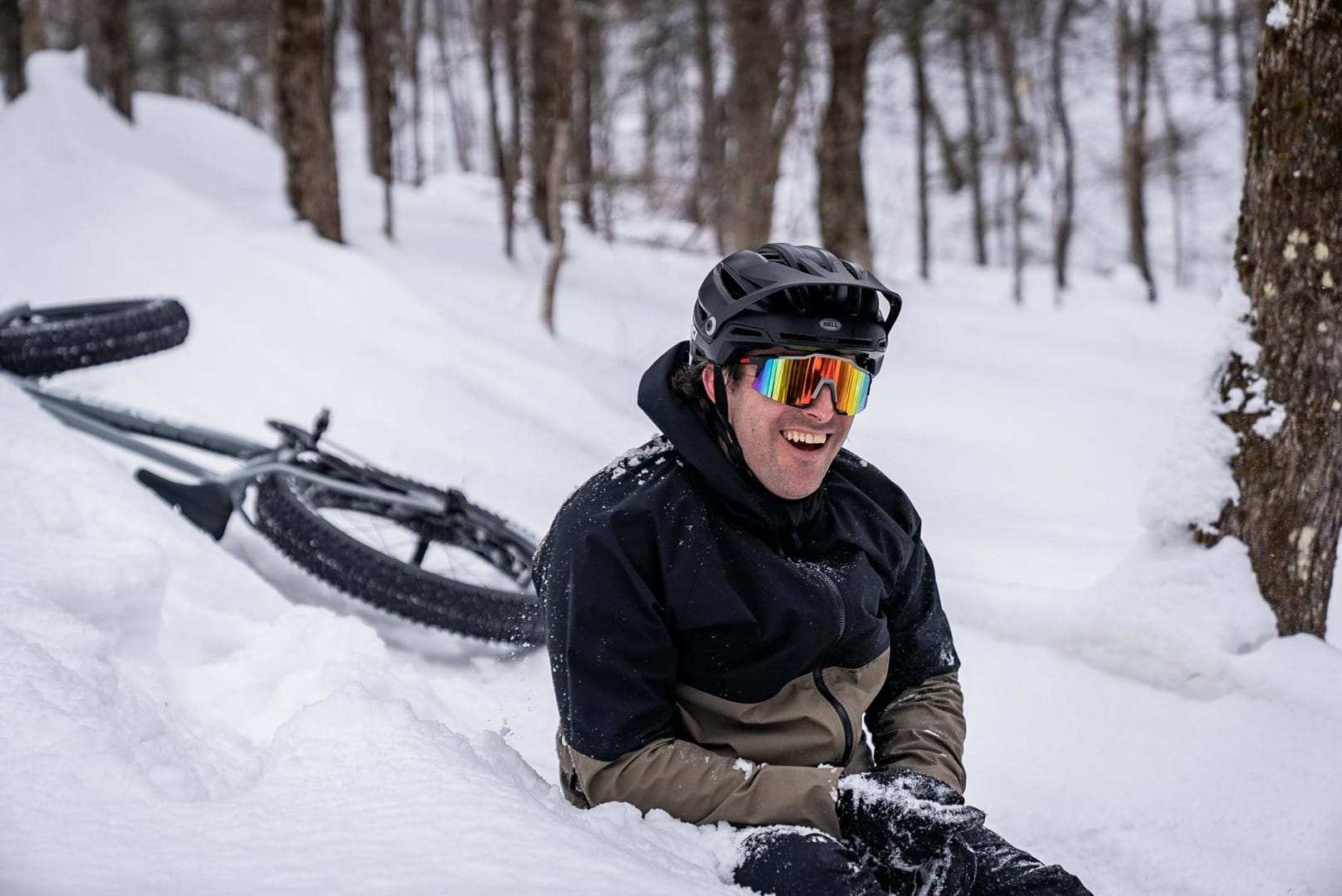
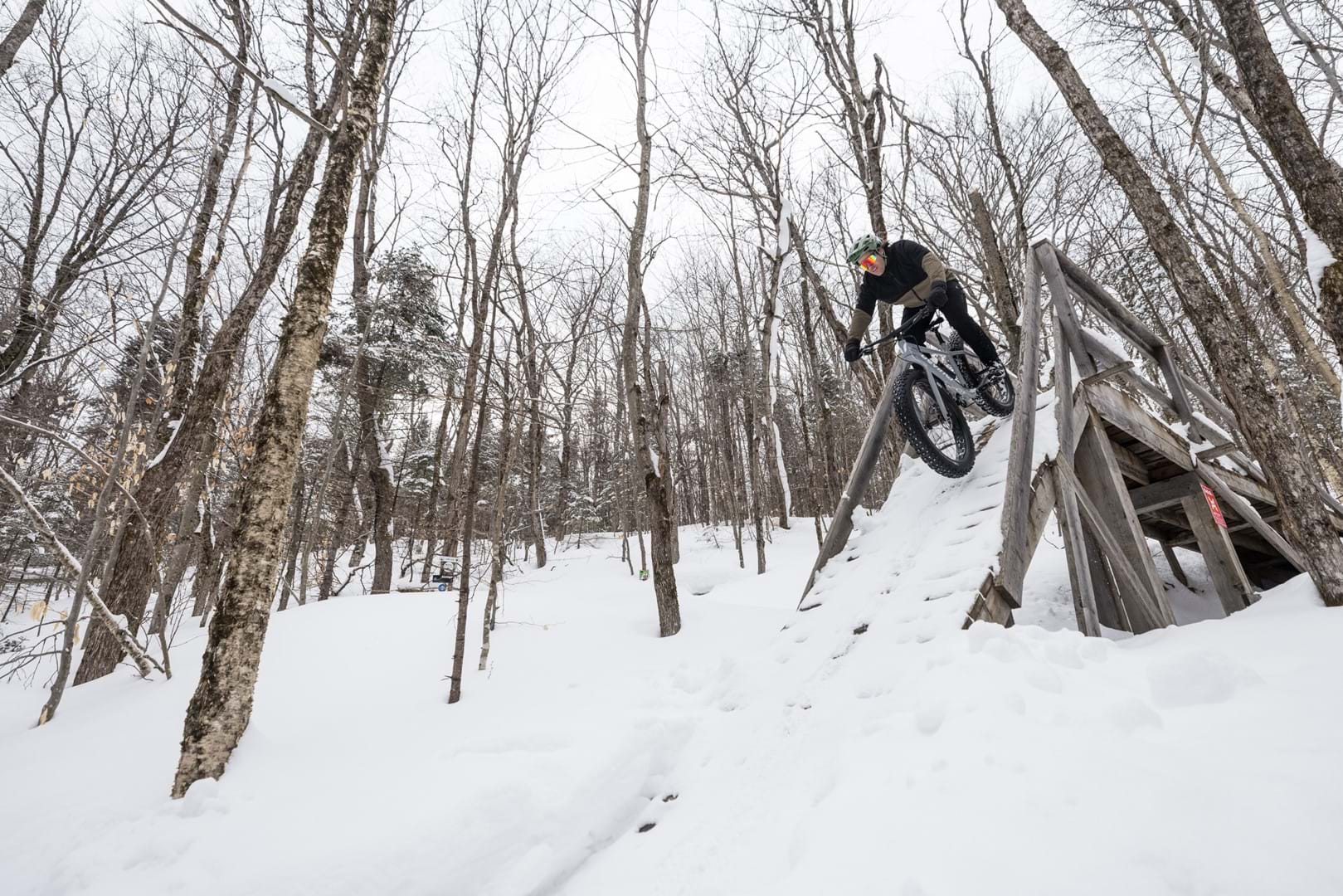
Equipment
Here are some accessories that will make your rides more enjoyable:
In winter, days are shorter, so it’s useful to have a good light to make the most of the evenings.
On cold days, use an insulated water bottle to prevent your water from freezing.
Mitts or “pogies” on your handlebars will keep your hands warm.
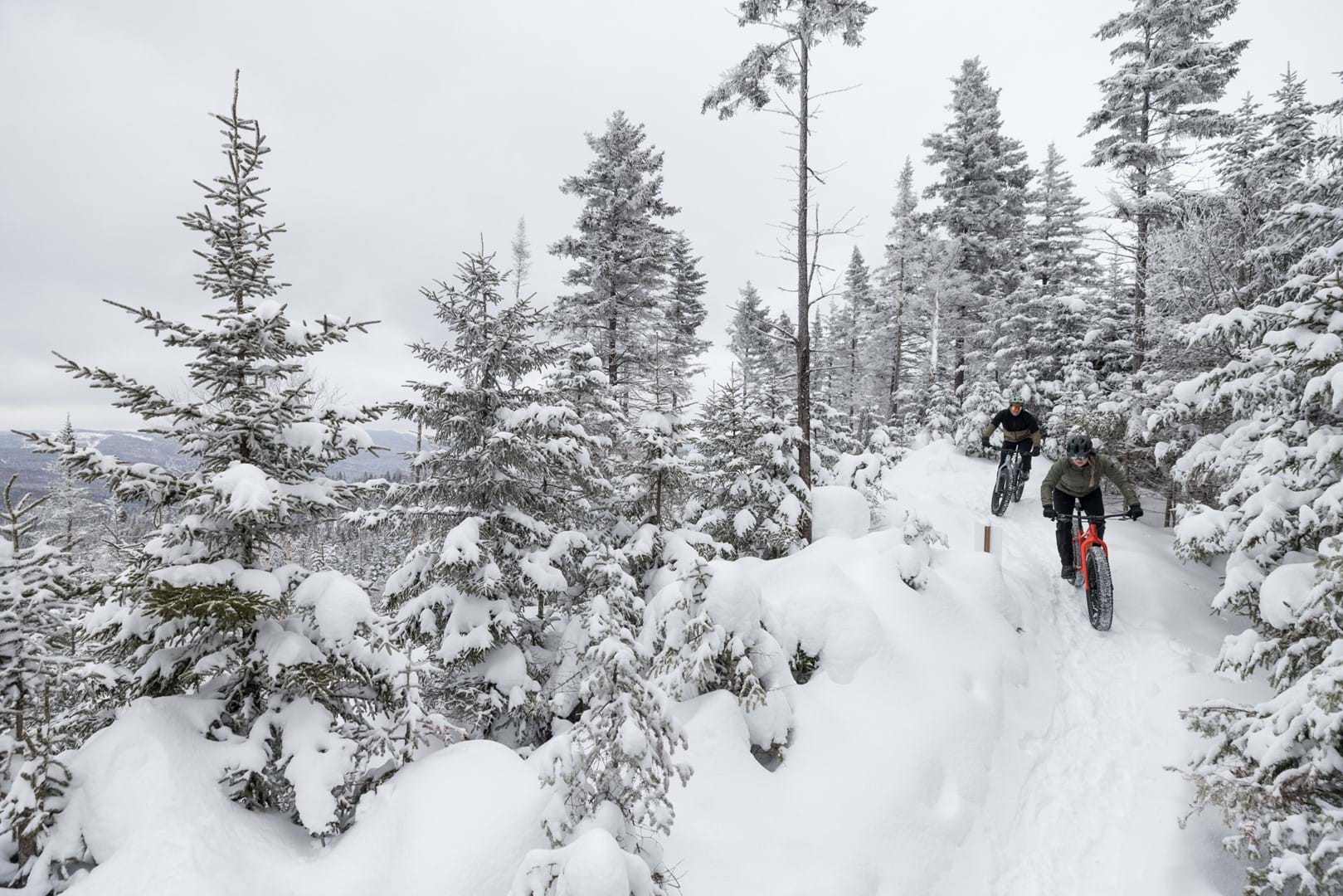
Now it's time to get ready and enjoy winter!
Minus
Fat Bike
Starting at US$1,699.00
No matter how slick, or cold, things get, the Minus fat bike is ready for more.







